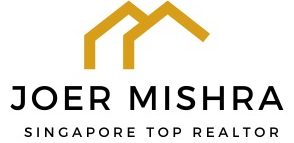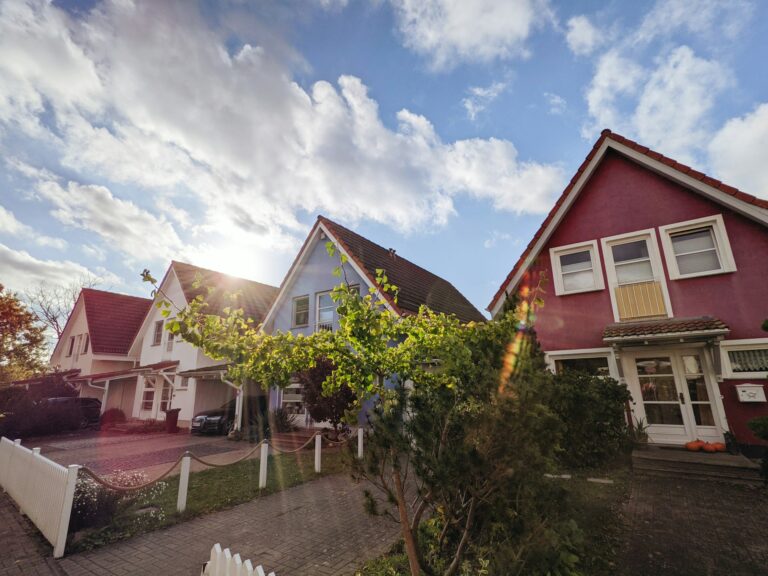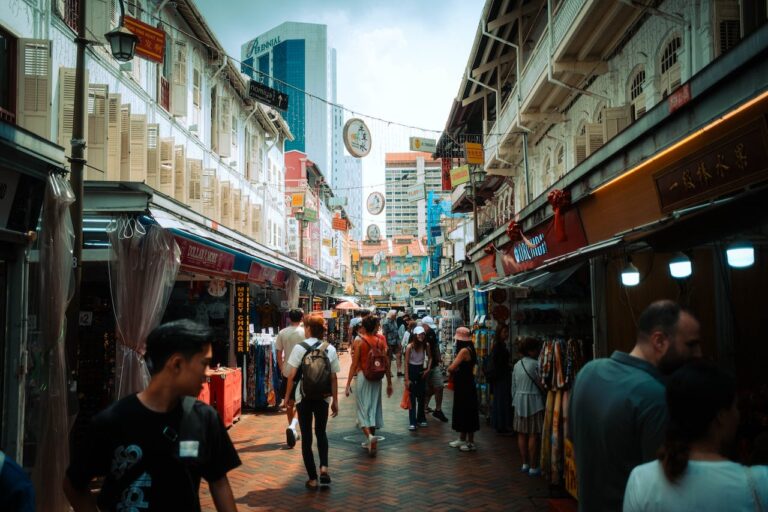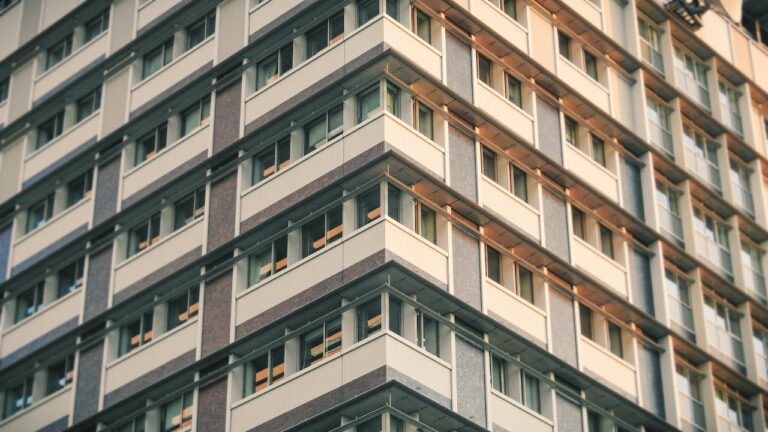In Singapore, the types of properties available for PRs depend on their residency status. Singaporeans can buy any property they can afford, but what about PRs?
While they have fewer options than Singaporeans, they have more choices than non-residents. Non-residents, also known as foreigners, have limited options, mainly restricted to a few types of private housing. Before we explore the different properties for PRs in Singapore, let’s first understand which properties are not accessible to PRs.
What kinds of properties in Singapore can’t PRs buy?
Vacant residential land
Terrace homes
Semi-detached houses
Bungalows or detached dwellings
Strata landed houses not within an approved condominium project (e.g. cluster homes or townhouses)
Association premises
Places of worship
Serviced apartments/boarding houses/worker’s dormitories (not registered under the provisions of the Hotels Act).
This above is a list of properties that non-Singaporean citizens and foreign entities can only buy with permission from authorities.
For properties available to PRs in Singapore, there are specific restrictions that non-Singaporean citizens and foreign entities must adhere to, and they can only purchase them with authorities’ consent. Under the Residential Property Act, only Singapore citizens, Singapore companies, Singapore societies, and Singapore limited liability partnerships can buy landed properties without prior government approval. If you’re a PR or foreigner eyeing any of these properties, make sure to apply for approval online at www.sla.gov.sg/ldau.
Each application is evaluated case by case, considering factors such as your PR status duration and your economic contribution to Singapore through taxes, investments, business activities, and employment opportunities provided.
Not Restricted Properties For PRs in Singapore:
Here’s a detailed breakdown of properties available for PRs in Singapore, along with those accessible to non-Singaporean citizens and foreign companies without requiring government approval:
Condominium units
Strata landed housing within an approved condominium project
Leasehold estates in landed homes for up to seven years
Shophouses for commercial purposes
Industrial and commercial properties
Hotels registered under the Hotels Act
Executive condominiums (ECs), HDB flats, and HDB shophouses (*subject to specific eligibility criteria and guidelines).
Unlike mainland Singapore where non-Singaporean citizens and foreign companies need government approval to purchase landed housing, in Sentosa Cove, both foreigners and PRs can acquire landed houses. However, it’s essential to note that these homes are leasehold and often come with a hefty price tag, making Sentosa Cove a playground for the affluent.
Singapore Properties That PRs Can Buy:
The main types of homes PRs can buy in Singapore are HDB flats, ECs, and private condos. But, besides private condos, the first two are seen as government housing, and PRs have specific rules to follow, Which will be explained in detail below.
Are HDB Flats Available for Purchase by Singapore PRs?
It depends on the situation. If we’re talking about purchasing an HDB flat directly from HDB, such as a BTO or SBF flat, a single PR (meaning a PR buying without a Singapore citizen) isn’t allowed to buy such a property. The only legal way for a PR to buy a new HDB flat is by marrying a Singapore Citizen. Once married to a Singapore Citizen, both individuals can jointly acquire a BTO flat through either the HDB Public Scheme or the Fiancé/Fiancée Scheme.
If two Singapore PRs are forming a household together, they are also unable to buy new, subsidized HDB flats sold by the government. However, they can purchase a resale flat together, provided both parties have held PR status for at least three years.
Additionally, it’s important to note that a single PR cannot purchase a resale HDB flat on their own.
If you’re interested in buying an HDB flat, you can determine your eligibility by applying for an HDB Flat Eligibility (HFE) letter. However, even if you meet all the requirements, you can’t just choose any resale flat you want. You must ensure compliance with the Ethnic Integration Policy (EIP) and the Singapore Permanent Resident (SPR) quotas when purchasing a home. To adhere to the EIP quota, you need to share the same race or ethnic group as the seller, and there must still be room for your ethnic group in the HDB block or neighborhood where you plan to buy. The quotas are updated monthly. To check the EIP quota for your desired location, please visit HDB’s e-Service.
Is it Possible for Singapore PRs to Purchase an Executive Condominium?
Whether a Singapore PR can purchase an Executive Condominium (EC) depends on the situation. To buy a new EC, a PR must marry a Singapore Citizen and meet similar eligibility criteria for purchasing a Built-To-Order (BTO) flat. The full eligibility conditions for purchasing a new EC can be found on the HDB website. On the other hand, buying a resale EC is simpler. PRs can purchase one individually without needing to form a family nucleus, unlike for resale HDB flats.
ECs blend public and private housing, developed and sold by private developers. These properties offer various amenities similar to private condos, including gyms, clubhouses, pools, and gated security. Initially, EC buyers must fulfill a five-year Minimum Occupation Period (MOP) as ECs adhere to HDB rules for the first ten years.
After the fifth year of receiving the Temporary Occupation Permit (TOP), PRs can sell or rent out the entire EC unit to Singapore Citizens and PRs only. After ten years, an EC becomes fully privatized, allowing owners to sell to foreigners.
Is it allowed for Singapore PRs to buy a private condominium?
When it comes to buying homes, PRs have more options with new or pre-owned condos, if they have the funds. Private residential properties are often seen as smart investments, especially in prime spots near MRT stations, shopping centers, and restaurants.
Can PRs buy Private Property in Singapore?
No, foreigners, including PRs, are not allowed to purchase landed properties in Singapore. However, you can request permission from the SLA under the Residential Property Act if you have been a PR for at least five years and have made a significant economic contribution to Singapore.
Before diving into Singapore’s property market, there are important financial matters to understand, specifically regarding two types of taxes: Buyer’s Stamp Duty (BSD) and Additional Buyer’s Stamp Duty (ABSD).
1: Buyer’s Stamp Duty (BSD) for PR in Singapore:
For Singapore Permanent Residents (PRs), the BSD rates vary based on the property price:
1% for the first $180,000
2% for the next $180,000
3% for the subsequent $640,000
4% for the following $500,000
5% for the next $1.5 million
6% for any amount over $3 million
Whether you’re a Singapore citizen, PR, or foreigner, purchasing property in Singapore requires paying BSD based on the sale and purchase documents or the property’s market value, whichever is higher.
If you receive a cash discount on the purchase price, it will be considered for BSD calculation as long as the net price still reflects the property’s market value and is stated in the documents. Otherwise, the discount won’t be factored in.
2: Additional Buyer’s Stamp Duty for Permanent Residents:
For Singapore Permanent Residents (PRs), Additional Buyer’s Stamp Duty (ABSD) rates vary depending on their property purchase history:
PRs buying their first property: 5%
PRs buying their second property: 30%
PRs buying their third and subsequent properties: 35%
This tax was introduced by the government on December 8, 2011, to control high demand for property investments by locals and foreigners. It also aims to maintain housing affordability for locals and ensure property prices rise steadily in line with economic factors.
If you’re a US citizen, you’re lucky because you don’t need to pay any Additional Buyer’s Stamp Duty (ABSD) for your first property. Similarly, citizens of Switzerland, Liechtenstein, Norway, and Iceland are also exempt because they’re considered foreigners eligible for ABSD remission under Free Trade Agreements. You can use an online stamp duty calculator to find out how much stamp duty you need to pay.
Wrap-up:
In conclusion, understanding the property market in Singapore as a Permanent Resident (PR) involves understanding various aspects. PRs have access to a range of property options, including HDB flats, Executive Condominiums (ECs), private condominiums, and other types of residential properties. However, there are restrictions on purchasing certain properties, such as landed houses, which require government approval.
When considering purchasing a property, PRs should be aware of the eligibility criteria and financial obligations. This includes understanding the requirements for buying HDB flats, which may differ based on marital status and citizenship status. Additionally, PRs should consider the Additional Buyer’s Stamp Duty (ABSD) and Buyer’s Stamp Duty (BSD) taxes, which vary depending on factors such as property price and purchase history.
It’s important for PRs to explore all available options and consider their long-term financial goals before making a decision. Seeking professional advice and utilizing online resources, such as stamp duty calculators, can help PRs make informed choices when navigating the Singapore property market.
Overall, while there are challenges and considerations involved, PRs have opportunities to invest in various types of properties in Singapore. By understanding the regulations, taxes, and eligibility criteria, PRs can make informed decisions and potentially benefit from the diverse property landscape in Singapore.





